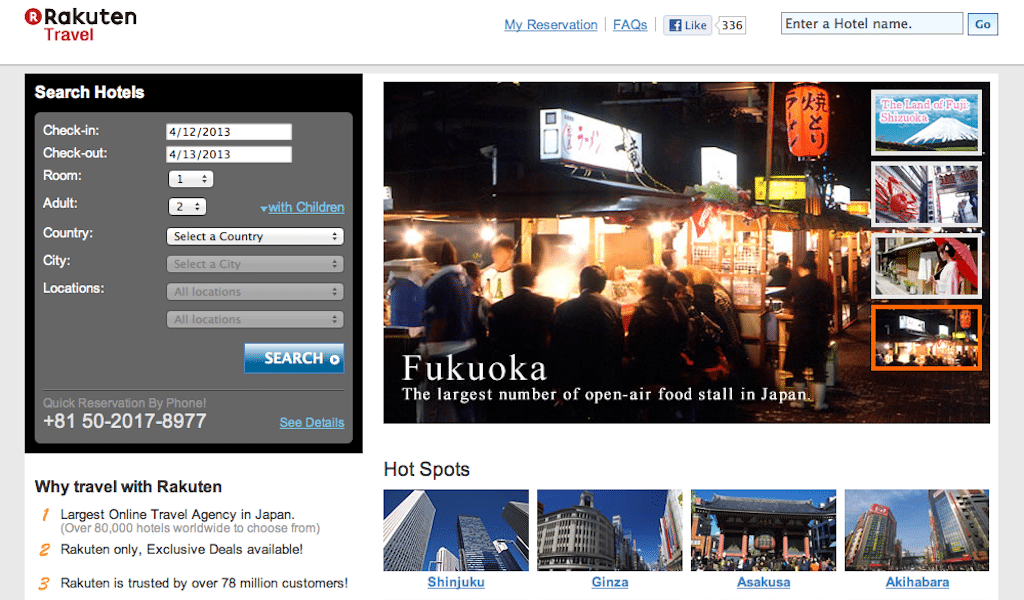Japan's largest travel site Rakuten Travel aggressively expands in Asia

Skift Take
Rakuten Travel Inc, Japan's largest online travel site, is gearing up to add customers in Asia and cash in on strong regional tourism growth.
"We aim to expand our business outside the home country, especially in Asia, thanks to sound economic growth and increased internet use," said Yoshi Yamada, vice-chairman of Rakuten Travel, a subsidiary of Rakuten Group.
Rakuten Travel has rapidly expanded its global footprint, setting up 12 offices since 2002. In 2008 the firm set up a local office in Thailand, touted as the first in Southeast Asia.
Mr Yamada said the company raised its marketing budget by 65% this year, compared with 35% last year, to promote its new travel site.
The website will include Thai and other Asian languages in addition to the existing English, Chinese, Korean and Japanese.
Rakuten Travel will get a commission fee or revenue share from each transaction.
The service has 27,000 hotel options in Japan in its stable and 61,000 globally (including 1,000 hotels in Thailand).
Mr Yamada said 90% of Rakuten's travel revenue stems from local customers in Japan.
"We aim for revenue from customers outside Japan to account for half the total by 2018," he said.
To achieve its goal, Rakuten is promoting the use of its website for tourists flying to Japan.
Mr Yamada said China and South Korea will still be Rakuten's major markets, while Southeast Asia will become a new revenue source.
(c)2013 the Bangkok Post (Bangkok, Thailand). Distributed by MCT Information Services.
![]()




